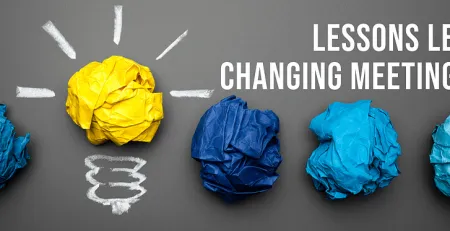5 Lessons a Team Can Learn from Geese
A couple days ago, I was talking to a friend about burnout, teams, leadership, and self-awareness. We chatted about how we, humans, are the smartest animal in the animal kingdom, however we are at times limited when thinking of our own physical, social and mental health. One example we discussed on how nature and animals are so intelligent is the V-formation that some birds and most commonly, geese form.
Have you noticed that when migrating, birds form this V-formation? These big-winged birds carefully position their wingtips and sync their flapping to catch the preceding bird’s updraft—and save energy during flight.
Geese demonstrate great teamwork in a number of ways. Below are just a few lessons we can learn from them:
Support each other to reach a common goal
As each bird flaps its wings, it creates uplift for the following bird, making it easier for the other to fly and most importantly, to save energy by drafting off each other. The lesson here is that with a team working together to reach a common goal, the group will gain momentum from the first push and continue to support each other and develop strategies, values, and action plans.
Teams are invaluable
In a V-formation, the whole flock extends at least 71% more flying range than if each bird flew alone. Working as a single individual can be hard, draining and ultimately will bring less benefit to the collective goal. Working individually can lead to burnout so remaining in formation and accepting support will keep teams moving ahead.
Accept Support
Whenever a goose falls out of formation, it suddenly feels the drag and resistance of trying to fly alone and quickly gets back in formation. As it rotates back into the formation, another goose flies at the V-point position. When someone is not in top emotional or physical health, work with those who need support, so together the team can perform at its best.
Give recognition
Geese in the rear of the formation honk to encourage those up front to up their speed. It’s important that our team ‘honking from behind’ be encouraging rather than judgmental.
Create a sense of community
When a goose gets sick or wounded, two other geese drop out of formation and follow it down to help and provide protection. Staying with it until able to continue flying or it ultimately dies. People who share a common direction and sense of community can get where they are going quicker and easier because they are ‘traveling’ on the trust of each other.
Ultimately, our success depends on working as a team, taking turns completing the hard tasks and sharing leadership.










